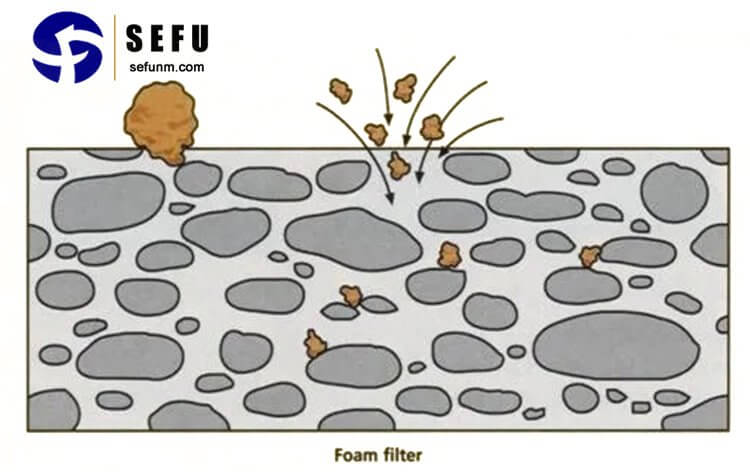Introduction:
In the realm of manufacturing and industrial processes, foundries play a crucial role in the production of metal components and products. Within foundries, one key element that significantly impacts the quality of the final output is the utilization of effective foundry filters. These filters are essential in removing impurities and unwanted substances from molten metal, resulting in improved product quality and enhanced operational efficiency.
Foundry Filters: Enhancing Product Quality
Foundry filters serve as critical tools in the metal casting process. They are employed to eliminate impurities, such as slag, sand particles, and oxides, from the molten metal before it solidifies into a desired shape. By removing these contaminants, foundry ceramic filters help ensure the production of high-quality metal components with superior mechanical properties, reduced defects, and enhanced surface finishes. The implementation of efficient foundry ceramic filters leads to improved customer satisfaction and increased market competitiveness for manufacturers.

Importance of Foundry Filters in Operational Efficiency
a. Foundry A specializes in the production of automotive components. By incorporating high-performance foundry filters, they experienced a significant reduction in casting defects caused by inclusions and sand-related impurities. This resulted in minimized rework and scrap rates, leading to substantial cost savings. Additionally, the enhanced filtration process facilitated smoother metal flow and reduced turbulence, allowing for faster production cycles and increased throughput.
b. Foundry B caters to the aerospace industry, where stringent quality standards are imperative. Through the adoption of advanced foundry filters, Foundry B achieved improved metal cleanliness, resulting in reduced instances of porosity and gas-related defects in their castings. This led to a higher acceptance rate of components during quality inspections and increased customer trust. The use of efficient filters also contributed to a reduction in post-casting operations, such as cleaning and surface treatment, streamlining overall production timelines.
Benefits of Foundry Filters in Cost Reduction
a. Foundry C operates in the marine industry, manufacturing large-scale ship components. By implementing tailored foundry filters, they successfully eliminated the presence of non-metallic inclusions, which had previously caused premature failures in their products. The improved quality and reliability of their castings allowed Foundry C to negotiate better long-term contracts with clients, consequently increasing their profitability.
b. Foundry D focuses on the production of intricate and high-precision machinery parts. Through the utilization of fine-pored foundry ceramic filters, they achieved a significant reduction in surface defects and impurities. This minimized the need for post-casting finishing processes, such as machining and polishing, resulting in considerable cost savings and improved overall production efficiency.
Conclusion:
Foundry filters play a pivotal role in the manufacturing process, ensuring the production of high-quality metal components with enhanced mechanical properties and reduced defects. Through the utilization of efficient foundry ceramic filters, trade cases across various industries have demonstrated improved operational efficiency, reduced costs, and enhanced customer satisfaction. Manufacturers in the foundry industry must recognize the importance of incorporating effective filters in their processes to remain competitive and meet the ever-increasing demands of the market. By doing so, they can ensure the consistent production of superior-quality metal castings, thereby establishing their position as reliable suppliers in their respective industries.

